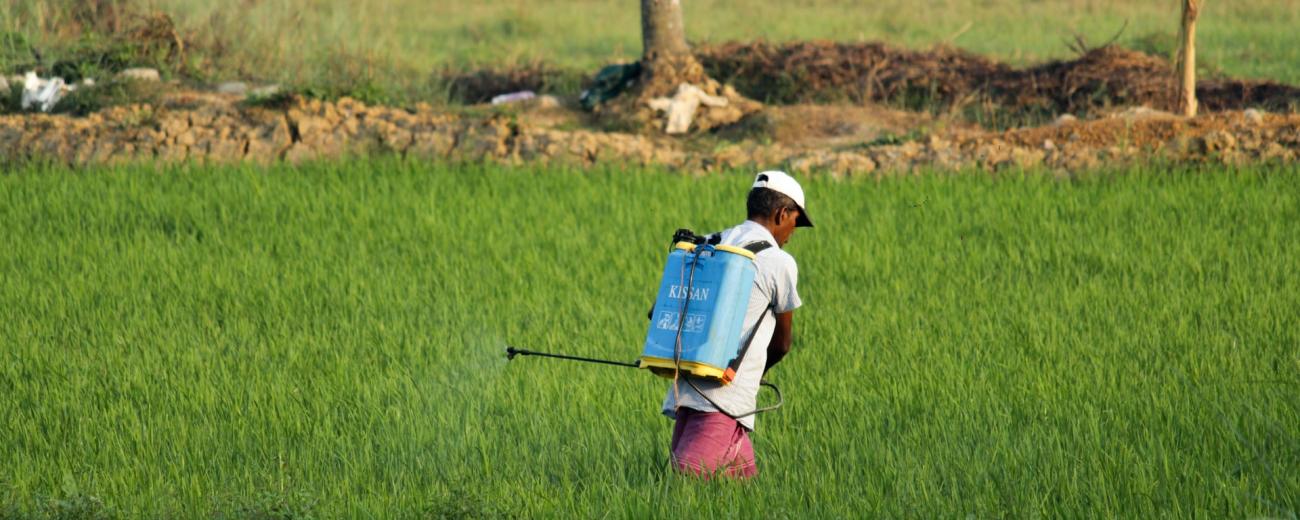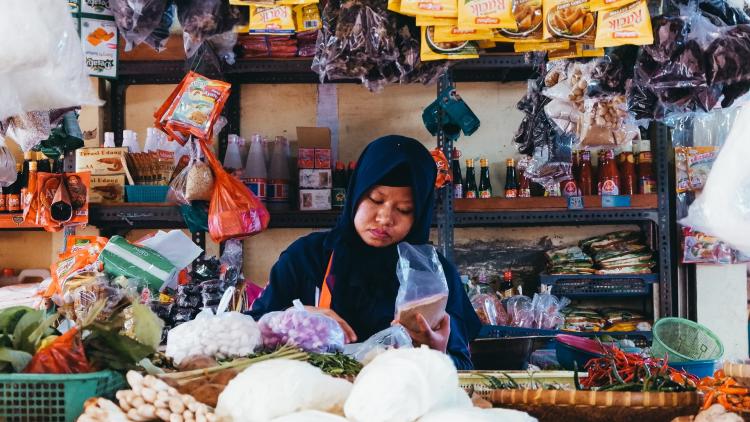MPhil/PhD in Development Economics


Key information
- Duration
- 3 years full-time or 6 years part-time
- Attendance mode
- Full-time or part-time
- Location
- Russell Square, College Buildings
- Fees
-
Home student fees (full-time): £4,860 per year
Home student fees (part-time): £2,430 per year
Overseas student fees (full-time): £22,490 per year
Overseas student fees (part-time): £11,245 per yearPlease note that fees go up each year.
See research fees for further details. - Entry requirements
-
Admission and thesis requirements. A good Masters degree in Economics plus one reference is usually required. Students are normally registered for the MPhil degree in the first instance. Once approval of the Research Student's Supervisory Committee has been received, the student's registration is upgraded to PhD status (and backdated to the commencement of the MPhil registration), usually at the end of the first year of study, for which the minimum registration period is double that of full-time study. Candidates are expected to present a thesis of not more than 55,000 words for the MPhil, while for the PhD the maximum length is 100,000 words. International applicants should also see Doctoral School English language requirements
Course overview
The PhD in Development Economics is a research degree offered by the Department of Economics, and is also part of the PhD pathway, 'International Development', within the Bloomsbury Doctoral Training Partnership.
The latter forms one of the few Centres recognised by the UK's Economic and Social Research Council (ESRC), thereby receiving financial support, and especially individual grants, for MSc and PhD students.
Why study PhD Development Economics at SOAS?
- We are ranked 27th in UK for economics (QS World University Rankings 2023)
- We are top 20 in the UK for student satisfaction with teaching (Complete University Guide 2023)
- We are top 40 in the UK for economics (Complete University Guide 2023)
- This PhD pathway is open to applicants whether or not eligible for, or in receipt of, ESRC funding, with ESRC-funded students expected to form a small minority overall. Successful applicants to the MPhil/PhD in Development Economics will normally have a good Master's degree in a relevant subject if entering directly into the MPhil/PhD pathway although each applicant is assessed on merits including work and other experience
- The first year of training involves attendance at courses and/or seminars but not usually formal written examinations. Students are registered for an MPhil in their first (full-time equivalent) year but usually convert to a PhD after their upgrade viva rather than continuing to the MPhil qualification
- An essential feature of the MPhil and PhD process is the close working relationship between research students and supervisors. Supervisors and students meet regularly and consult closely. All research students have a Supervisory Committee to cover theoretical, empirical and regionally-specific supervision, as appropriate
Research student tutors
There are Research Student Tutors with overall responsibility for research students, who are available for discussion of general problems. And the Departmental Empirical Support Committee (DESC) offers detailed and individual advice to students about fieldwork and empirical analysis as appropriate.
As necessary, upon request, DESC will consider individual student needs and allocate one or more members of staff (not necessarily the supervisor) to advise.
Workshop/seminar
Students are required to participate in a workshop/seminar in which research topics and results are presented and discussed by staff and students. In addition, there is a regular Departmental seminar, to which members of the Department and visiting speakers present papers.
There is a strong interdisciplinary basis for research and teaching in political economy, development economics and area or specific country studies. London, moreover, provides an unrivalled opportunity for students to hear papers read by leading authorities in African and Asian studies, as well as in economics and development more generally.
Fieldwork
Many SOAS research students spend some time doing fieldwork in the regions of their research. The Faculty of Law and Social Sciences and the School as a whole, through their various connections with individuals and institutions in the universities and governments of Asia and Africa, can usually facilitate this with personal contact and introductions.
Scholarships, funding and ESRC recognition
There are a number of scholarships available to research (and MSc) students at SOAS. Please see Scholarships and Bursaries for further information. But it is a condition of acceptance that students embarking upon a research degree have the capacity to fund the full duration of their studies. There may be some paid opportunities for teaching, normally not in the first year, but these cannot be relied upon and will not begin to cover fees and maintenance fully.
Structure
The research degree embodies a core of training in research methods combined with a clear structure of progression thereafter. The training components are explained below. The duration and structure of the research degree will be as follows:
Full time research degree: 3 years plus 1 year writing up
Year 1 - Research Training
Research students will take the 'Research Methods for Development Economics' course in the Economics Department.
Year 1 - Upgrade
Students will normally be expected to pass an upgrade from MPhil to PhD status within 9 months of commencing the degree.
Year 2-3 - Research
Core research undertaken; primary and secondary data collection as appropriate, thesis chapters finalised.
Year 4 - Write up
If necessary a fourth year can be taken to write the final thesis. Examination of the thesis will take place after submission within the 4th year.
Part-time research degree: 6 years, plus 1 year writing up
The research degree can be undertaken over 6 years:
- Research Methods course must be taken over the first two years.
- Upgrade will take place withing the 21 months after initial registration.
- Examination will take place after submission within the writing-up year (year 7) at the latest.
Important notice
The information on the website reflects the intended programme structure against the given academic session. The modules are indicative options of the content students can expect and are/have been previously taught as part of these programmes. However, this information is published a long time in advance of enrolment and module content and availability is subject to change.
Teaching and learning
Research training in Development Economics
All research students are expected to attend a dedicated research student seminar. In addition, a separate programme of research training is offered for first-year students. The sessions will deal with theoretical and methodological issues in Economics and Development Economics, as well as subject-specific guidance on other generic research skills (such as literature reviews, fieldwork planning).
In addition, students will attend a termly Development Economics research day, where there will be a mediated discussion of theoretical and methodological issues faced and an opportunity for students to present their own research. Students will also attend the general Research Students Seminar that provides a range of input for all stages in the completion of a PhD and Early Career Development for Development Economists.
Objectives
- to encourage and enable students to complete an original thesis in the expected time.
- to provide training and experience in fieldwork and across a variety of schools of economics and in a variety of statistical techniques.
- to allow flexibility in training to suit students with different backgrounds and subsequent research needs.
- to make available and to monitor first class research supervision with the involvement of at least two members of staff through individual Research Student Supervisory Committees.
- to encourage knowledge of other relevant disciplines and the adoption of an interdisciplinary approach where appropriate.
- to equip students with the ability to assess one another's work critically, whether in response to written or spoken presentation.
- to obtain language skills as appropriate.
- to ensure students experience a congenial and productive environment for the conduct of research through availability of a wide range of facilities and full participation in the intellectual life of the Department and School. Library facilities are outstanding and computing facilities are attuned to student needs.
- to emphasise the relevance of research to theoretical, empirical and policy issues.
- to draw upon the Department's particular strengths, especially its expertise in different approaches to economic problems and its experience in problems of development, specific regions, and comparative analysis.
- to involve students in the specialised Centres of the School where appropriate.
- to advise on publication and career progression.
A broader student-tailored programme of training needs can also be established in the first weeks of study, with a range of courses available from the Department’s MSc programmes. To this end, all students should undertake a Training Needs Analysis with their supervisor in the first weeks of Term 1 .
Supervision
1. The role of the second and third members of the Supervisory Committee (SC) Will be focused on the following two core tasks:
- Participate in the upgrade process of the student, including the final decision relating to his/her transfer from MPhil to PhD.
- Participate in other dicisions relating to his/her eligibility for enrolment on Extension of Writing-up (Continuation) Status or, where necessary, termination of registration.
2. In addition to these core roles, the second and third members of the SC may be expected to:
- Enhance or augment the supervision of the student by contributing addition guidance and expertise, if required/sought by the student and/or the supervisor throughout the time of active research.
- To act on behalf of the supervisor during unforeseen periods of absence. This role will have be agreed by consent of all parties (student, supervisor and the two members of the SC) and one of the two members will be designated as cover in absence for the period in question.
3. Only rarely is joint supervision allowed, for which a strong case would need to be made. Whilst the primary responsibility for guiding student's research and to review written work and progress rests with the supervisor, once upgrade is successfully completed, other members of the supervisory committee must receive the student’s thesis drafts at appropriate times, with support also available to students from the Departmental Empirical Support Committee (DESC).
Computing facilities
Full computing facilities are available to postgraduate students. Computers dedicated for the use of research students in the Economics Department are also available. Software available includes word-processing and specialised statistical, econometrics and spreadsheet packages. The School’s computing staff are on hand to assist with general computing problems.
SOAS Library
SOAS Library is one of the world's most important academic libraries for the study of Africa, Asia and the Middle East, attracting scholars from all over the world. The Library houses over 1.2 million volumes, together with significant archival holdings, special collections and a growing network of electronic resources.
Scholarships
Fees and funding
Fees for 2023/24 entrants per academic year
| Home students | Overseas students | |
|---|---|---|
| Full-time | £4,860 | £21,630 |
| Part-time | £2,430 | £10,815 |
Please note that fees go up each year.
See research fees for further details.
Employment
Economics graduates leave SOAS with a solid grounding in statistical skills and an ability to think laterally, take a global perspective, and employ critical reasoning.
Recent graduates have been hired by:
- Bain & Co
- Bank of America
- Cabinet Office
- Deloitte
- Ernst & Young
- KPMG
- NHS England
- Foreign and Commonwealth Office
- Department for Business, Energy and Industrial Strategy
- HSBC
- National Institute of Public Finance and Policy, New Delhi
- UK Civil Service
- United Nations High Commissioner for Refugees (UNHCR)
- University of Bayreuth
- HM Treasury
- Department for International Development
- PwC
- UNDP
- King’s Investment Fund
- Foreign and Commonwealth Office
- The World Bank
- EY
- British Chamber of Commerce
- European Commission
- Institute for Social and Economic Studies
- International Climate Change Economics
- Overseas Development Institute
- UNICEF
- Oxfam
- RBS
Find out about our Careers Service








